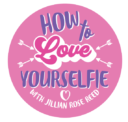Be Yourselfie
(Engage in social media literacy)
-
 Expand My Supportive Community
Expand My Supportive Community
-
 Promote Authenticity
Promote Authenticity
-
 Recognize What Spreads Content
Recognize What Spreads Content
-
 Form an Impression
Form an Impression
-
 Question “Suggested for You” Content
Question “Suggested for You” Content
Opening Up Thoughtfully
Click here for Social Media Literacy PromptOn one hand, being authentic–vulnerably allowing people to see more of the “real” us–involves a bit of risk. On the other hand, authenticity promotes real connection, and it’s normal if you seek connection. (You’re human!) But you need to consider the risks as well as the benefits and seek a balance that feels right to you. When you have little control over who sees your posts, responses can range from awesome and supportive to “ troll ” and mean.
If you feel moved to share personal stuff on social media (your struggles, mental health, etc.), as you share, keep checking in with your feelings, paying attention to body sensations, and noticing your thoughts. They’ll guide you. And, for those with less social capital due to marginalized identities, finding that risk-to-potential-reward balance can be especially difficult. So please don’t judge yourself (or others). We’re all trying to figure it out. And truly, there is no “right” way to share your authentic self, ask for support, or build your own community on social media. There is only your authentic self and your authentic ways.
Click the Save button and go to the next tab on this page.
Posting Real Images
Click here for Social Media Literacy Prompt
Research is pretty clear on the following:
- Body dissatisfaction has been one of the strongest predictors of disordered eating.
- Body dissatisfaction can contribute to depression, self-esteem issues, eating disorders, and other mental health problems.
- Posting a photo of yourself has been shown to increase body dissatisfaction, and studies show that editing seems to make it even worse!
Yes, editing and posting selfies can help tank your body image. It’s just one more reason that being authentic online and IRL can be a positive choice.
Click the Save button and go to the next tab on this page.
Getting Wise about Media Manipulations
Click here for Social Media Literacy Prompt
Many of us are hoping that one day, we’ll post something that goes viral. But have you ever considered what makes social media content get shared endlessly? A lot of it has to do with how the content impacts us emotionally.
- Research shows that “joy moves faster than sadness or disgust, but nothing is speedier than rage.”
- The feeling that got things moving even faster than anger? It’s awe: “the feelings of wonder and excitement that come from encountering great beauty or knowledge.” When we’re in awe of something, we want to share it with others so they can experience the same excitement.
- But just because it inspired an emotion in us, we don’t actually know why someone chose to share it, especially if they are being paid to share it. In 2021, the number of brand-sponsored influencer posts on Instagram surpassed three million, creating a fifteen-billion-dollar business market.
Click the Save button and go to the next tab on this page.
Representing a Real Me
Click here for Social Media Literacy PromptIt can be easy to forget that whole people are behind the images on social media accounts. Even when we see only one aspect of their lives on a page, there’s so much more to them: They have friends, family, struggles, hobbies, interests, etc. As more and more of our lives are lived online, other people are looking there to get a sense of who we are - from potential romantic partners to college admissions boards to future employers. How are you representing who you are online? (Seriously, you’re dynamic no matter how much or little you do, feel, think, or like.)
Click the Save button and go to the next tab on this page.
Learning A Bit About Algorithms
Click here for Social Media Literacy PromptAn important piece of social media literacy is recognizing that media shapes how we understand reality. So when algorithms purposefully suggest content that is similar to what we already follow, it’s easy to start to believe that our point of view is the only one out there.
Did you know that according to research, social media accounts of BIPOC and other marginalized creators are often filtered out or flagged by algorithms? Worthwhile posts may not be shared because the creator’s account doesn’t have many followers yet. So we’re likely not seeing an authentic reflection of reality on our social media feeds.
